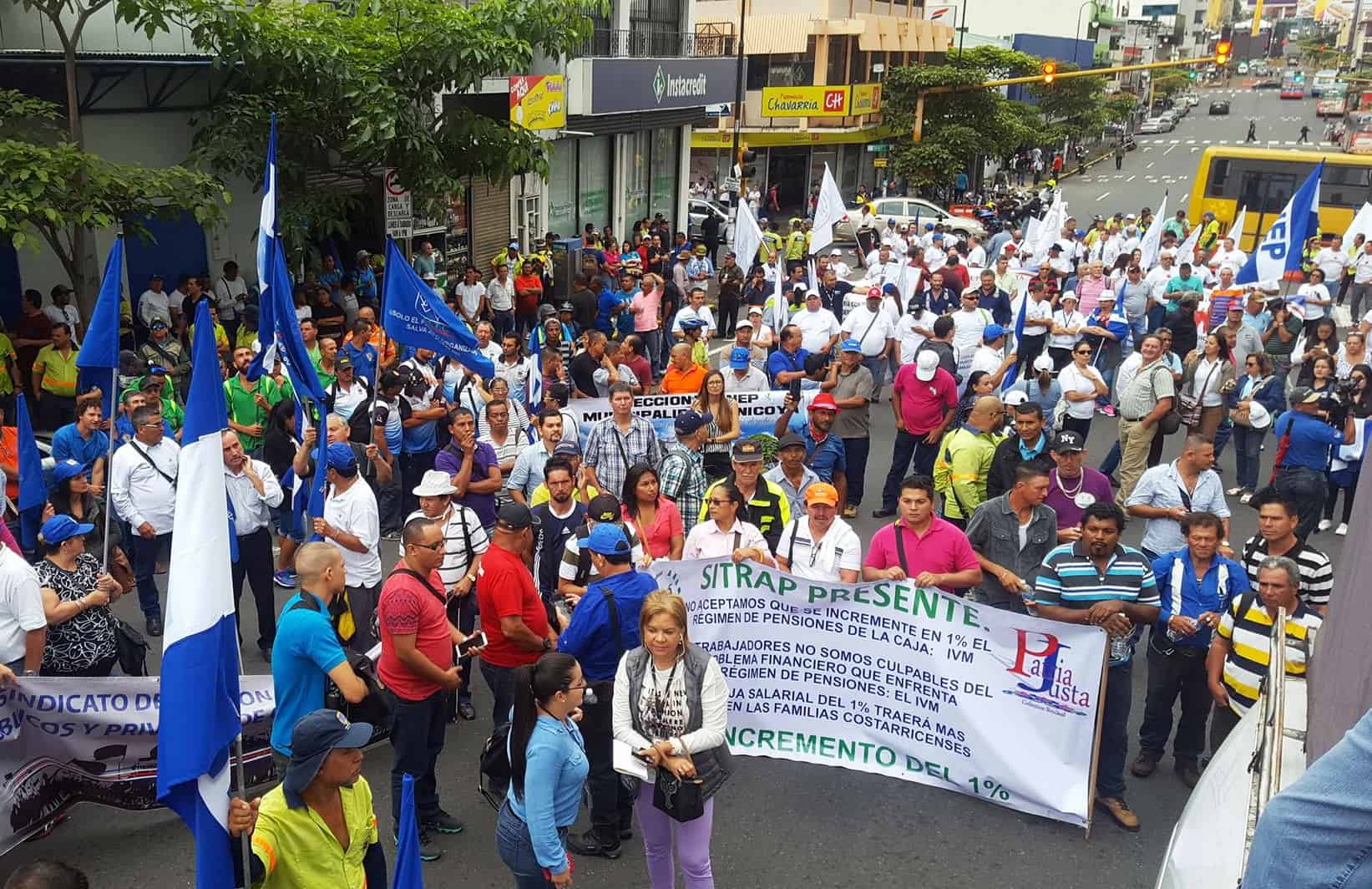A total of 1,490 employees of the Social Security System, or Caja, joined the strike called for public workers’ unions on Thursday and affected more than a thousand patients across the country.
The Caja in a news release reported Thursday evening that the figure of striking workers represents 2.7 percent of its employees. The strike, however, provoked the suspension of 1,030 medical appointments.
The protest also prevented 229 patients from undergoing a specialized procedure and 114 more had their surgeries postponed.
A total of 19 of Caja’s 133 clinics and hospitals joined the strike against the 1 percent raise in the monthly salary deduction that all workers contribute to the Caja’s Pension System, or IVM.
Caja’s amendment to the IVM Law appeared in the official newspaper La Gaceta last week, and will enter into force on July 1.
Workers’ monthly salary deduction for the IVM will go from 2.84 to 3.84 percent. The increase will apply in two parts: on July 1, it will increase by 0.5 percent. The other 0.5 percent will be applied in January.
Unions’ leaders during the march also called for an investigation into alleged irregularities of Caja’s financial operations, as they believe that “there is a mismanagement of the funds that all workers provide.”
Low turnout
Despite the absence of employees at public hospitals, only a small group of the National Union of Caja Workers joined the march in downtown San José.
Unions’ leaders had called for all public-sector employees to gather at 9 a.m. in front of La Merced Park in order to march along the capital’s Second Avenue.
The group of a few hundred demonstrators also included teachers and workers from public schools, municipalities and other public agencies.
A first group of protesters started marching in front of the La Merced Park shortly after 10 a.m. Another group marched along Paseo Colón and joined the protest in front of the Caja’s main building.
Union leaders said that this was only the first of other future demonstrations that “could lead to a major impact on the country’s public services.”






